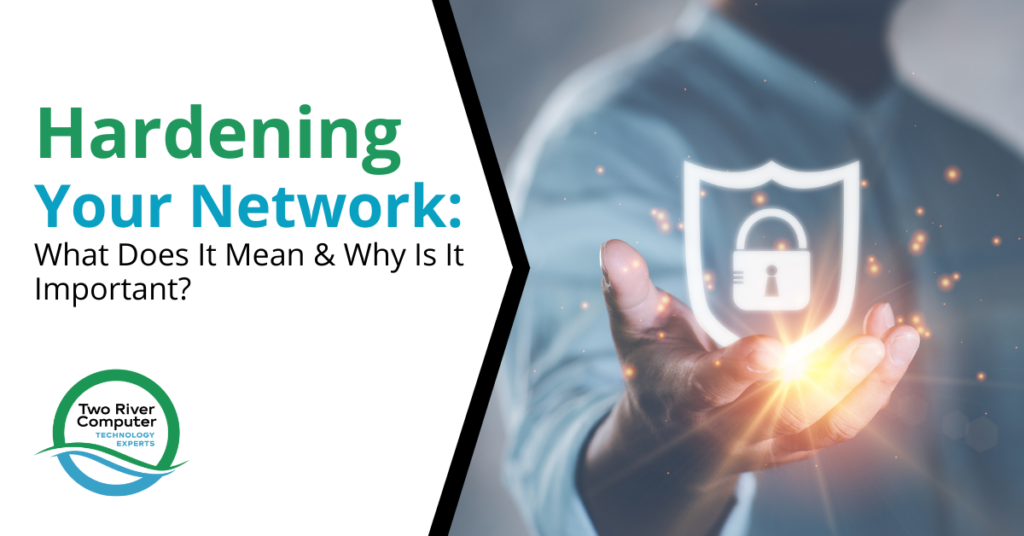
Many people are concerned about their data and network security in light of global unrest, previous cyberattacks, and ransomware attacks. In the third quarter of 2021 alone, ransomware attacks increased by 140%.
There are also new and more sophisticated attacks occurring all the time as large criminal groups use the same AI and machine learning techniques used by software companies to optimize their products.
This has led rise to new dangers such as Ransomware as a Service (RaaS) and phishing being automated and sent via text message as well as email. And various attack metrics you hear about are often connected.
For example, the rise in ransomware rise in phishing, and the rise in supply chain attacks are all connected. Phishing is largely used to launch all types of attacks. Emails or texts are sent to unsuspecting people and are cleverly disguised to look legitimate. They might even have your first name and company name in the email.
When an employee clicks a link or opens a file attachment in those phishing emails, it often leads to an infection of ransomware (being one of the top malware types used). It could also lead to a fake login form that looks exactly like one for a trusted website and be a ploy to steal login credentials.
Of the last three major supply chain attacks (Colonial Pipeline, JBS, and software provider Kaseya), all three were attacked with ransomware.
97% of companies have been victims of a breach in their supply chain, and 93% suffered a direct breach as a result of a supply chain breach.
The complex nature of today’s threat landscape means that companies of all sizes need to continually test for vulnerabilities and upgrade their cybersecurity strategy to address any new weak spots.
Often, small and mid-sized businesses won’t invest in the type of IT security they really need to stay protected. Then, one ransomware attack or breach of confidential client information leaves them with millions of dollars in remediation costs. Many end up going under after an attack.
This is why network hardening is so important.
What Is Network Hardening?
Network hardening is a collection of best practices and tools to mitigate vulnerability in your technology systems, applications, infrastructure, etc. This includes drilling down into granular details of risk and looking at things both holistically and individually, such as endpoint security, cloud security, etc.
Three important principles to use when hardening your systems and network to improve security are:
Institute a roadmap to harden the organization’s overall cybersecurity security footprint. This includes things like:
- Vulnerability testing
- Security scanning
- Immediate patching of known vulnerabilities on all systems
Adopt and embrace a culture of cybersecurity at your business. This includes ongoing employee education, phishing testing, and always putting security first in any new project.
Plan and prepare in case of a cyberattack by implementing an incident response plan aligned with the organization’s business continuity plan.
Tips to Protect Your Business from Cyber Attacks
Use Strong Account Assess Security
Compromised account credentials are now the #1 cause of data breaches globally. It’s important to use safeguards such as multi-factor authentication to protect accounts, as well as enforce a strong password policy.
Secure Business Wi-Fi Networks
Wi-Fi networks both in your office and in the homes of employees working remotely should at minimum be secured using a strong password (combination of numbers, letters, symbols). Additionally, it should be set to not broadcast the network name.
Use Reputable Next-Gen Antivirus/Anti-malware
All devices used for business purposes, including servers, computers, and mobile devices, should have a reputable next-gen antivirus/anti-malware. You want one that can catch zero-day threats.
Back-Up All Critical Systems & Platforms with a Reliable Backup Software
Use reliable backup and recovery software for all critical data, including cloud platform data. Also, test your data recovery regularly in disaster preparation drills.
Automate Your Update & Security Patch Application
All software, operating system, and firmware updates should be managed and automated to ensure they’re installed in a timely manner.
Put Protections in Place for Unsafe Hyperlinks & Email Attachments
Train employees to refrain from clicking links or opening attachments from unknown senders. Additionally, put system safeguards in place, such as email and DNS filtering.
Use a Reputable IT Service Provider for System Management, Monitoring & Response
Use a trusted and reputable IT service provider, such as Two River Computer, that can help you ensure that all endpoints and network systems are properly managed and protected.
Get Help Hardening Your Small Business Systems
Two River Computer can help your Fair Haven business with both general holistic services for proactive IT security and can refer you to the services of a sub-contractor we know and trust to see if there’s anything they can “harden” on your network to improve your cyber-security position.
Contact us today for a free consultation. Call 732-747-0020 or reach us online.


